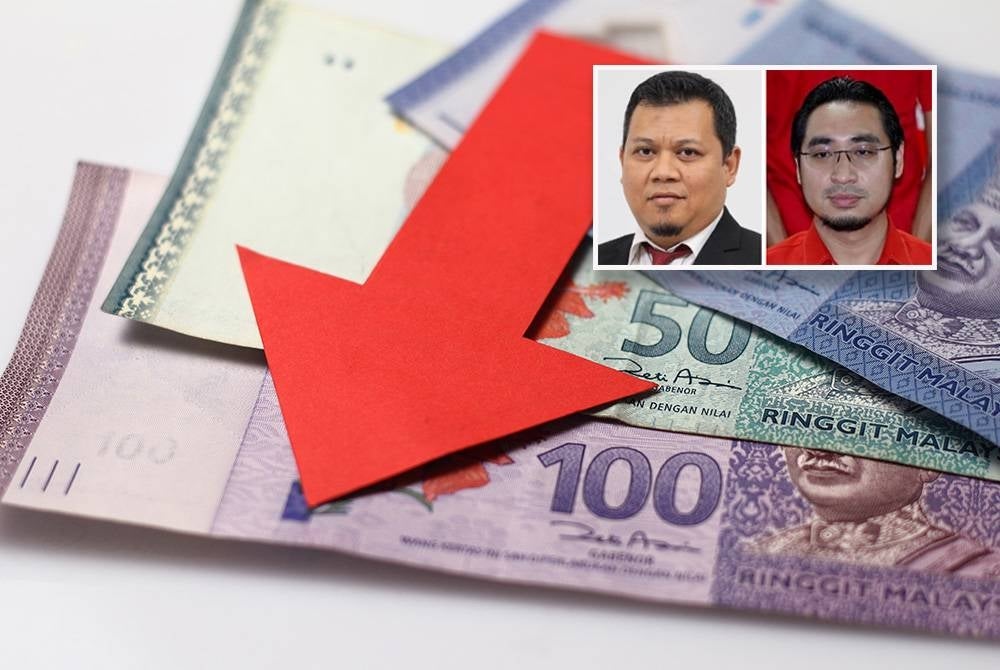Drastic measures should be in place in raising value of ringgit

SHAH ALAM - Economic and financial experts are recommending some drastic measures for the government to take in addressing the plummeting value of the Malaysian ringgit.
Economic analyst Dr Mohd Faisol Ibrahim said one of the most important measure was to strengthen the country's political stability.
He said through political stability, investor's would be confident that no government policy would be changed due to the government helping them in planning and budgeting.
"The influx of investors would not only bring in technology and businesses, but it would aid in increasing the value of the currency as the demand for ringgit is increasing and would continue to increase and create job opportunities.
"I view that political stability could save the ringgit from plummeting further.
"This is due to politcal stability influencing other factors relating to currency stability," he told Sinar, yesterday.
Faisol added that other measures that could be taken were to attract investors and bring as many foreign investments to the country primarily from big corporations.
He explained that it would stimulate the ringgit's demand that would ultimately strengthen the currency.
"For example, the Langkawi International Maritime and Aerospace Exhibition 2023 (Lima '23) was one of the best platforms for Malaysia to attract investors," he said.
The next step, he said was for Bank Negara Malaysia (BNM) to reduce the inflation rate to under three per cent to restore the ringgit's value.
He explained that the high inflation made the ringgit drop in value as its true value dropped through the increase in the prices of goods.
Faisol said other than that, the government could tightly control the cash flow overseas through foreign workers as it influenced the currency value.
"Foreign workers from Bangladesh or Indonesia working in Malaysia will send their salaries to their families in their respective countries through banking.
"The money circulating in Malaysia will decrease and if it is not controlled, the government may have to print more money to retain the cash offered in the market," he said.
He said the purchasing power among users would decrease causing an increase in the prices of goods as the costs to produce a product had risen with the ringgit's weaker value.
Economist Dr Oh Ei Sun said he was of the view that the short term solution was for Malaysia to purchase more United States (US) dollars on the open market.
However, he said it was difficult to perform as the government did not have enough revenue.
"Usually, to increase the value of a currency, BNM would purchase US dollars in the open market with local currencies.
"This is to decrease the local currency on the open market. This would increase the local currency compared to the US dollar," he said.
He added that the long term plan would be to improve the investment environment that will enable foreign investors to bring in US dollars.
"The government can learn from Vietnam where they recently pulled in investors by increasing their US dollar holdings," he said.
Bersatu Armada chief Wan Ahmad Fayhsal Wan Ahmad Kamal had lashed out on Economy Minister Rafizi Ramli's statement on how the ringgit plummeting was good for the country.
The Machang MP explained that there were many positive sides from an export standpoint, but the negative side outweighed it.
"It can't be denied that it is good for the parties exporting our goods. However, as a whole the fall of the ringgit is not good.
"This was due to borrowing costs increasing, debts becoming higher to pay. The public's economy would surely be affected if ringgit falls.
Rafizi recently stated that the fall of the ringgit's value has a positive effect on the economy such as the increase in the oil sector where the commodity prices were set in US dollars.
Fayhsal challenged Rafizi to release the data of households or companies in Malaysia that showed a positive development as a result of the ringgit falling.









